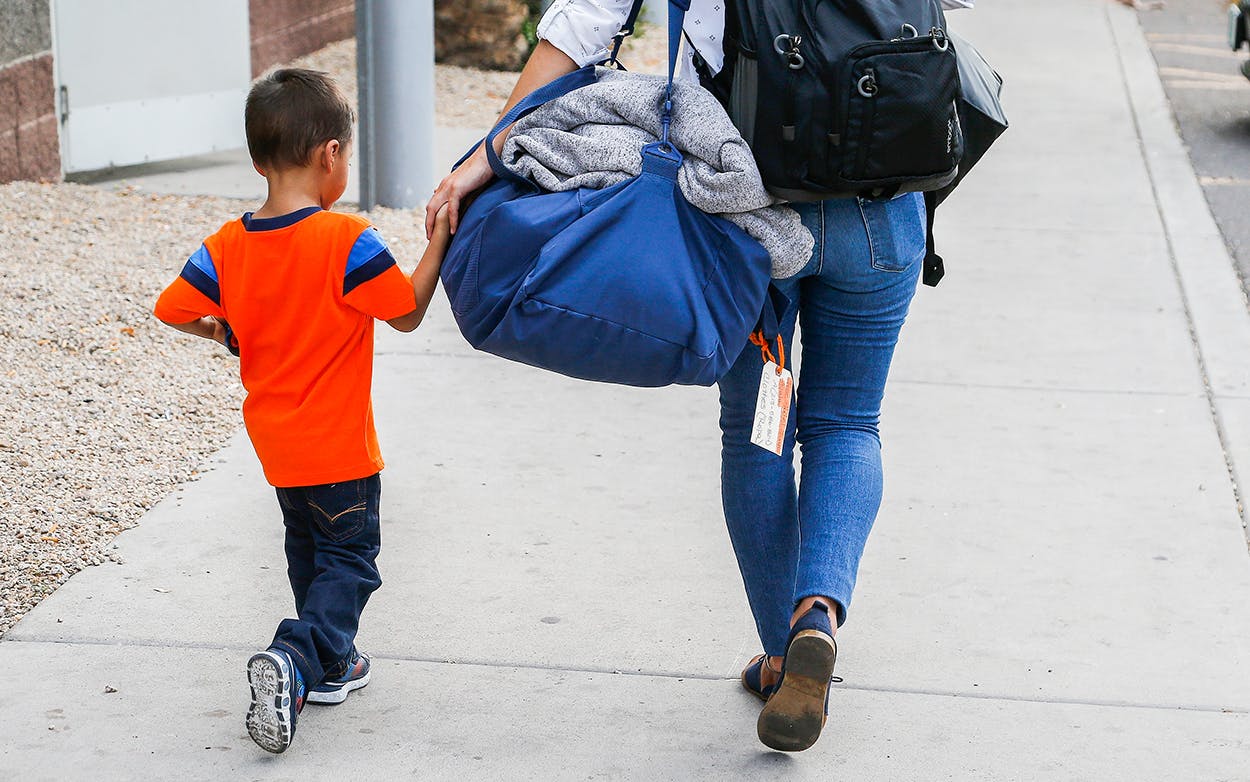After a federal judge in San Diego issued a court order last week, the Trump administration was required to reunite parents with children younger than five who were separated at the border by Tuesday. But by the deadline, only 38 of the 102 children identified in the court order had been reunited with their parents, even though the government initially claimed it would return 54 children to their families by then (just over half of the mandated number). By Thursday, they had completed a total of 57 family reunifications, and told the court that the remaining families were “ineligible,” citing either parents who’ve already been deported without their kids or a failure of some parents to pass criminal background checks.
That’s just parents of children under five. Parents of the estimated 2,000-3,000 children between ages five and seventeen who are attempting to regain custody face an even less certain road. According to Austin immigration attorney Kate Lincoln-Goldfinch, who represents two clients in that situation and has advised a number of attorneys representing others, the process is slow and confusing—and, she says, seemingly designed to use speedy family reunification in order to pressure parents to agree to deportation.
As has been previously reported and confirmed by administration officials, the reunification process prioritizes deportations. Lincoln-Goldfinch says that parents in custody are told this, too.
“Parents are being told that the more they pursue their asylum claims, the more difficult it is to reunite with their children,” she says. She describes the situation of a woman named Lesvia, who was released from the Hutto detention center in Taylor last week with a pending asylum claim, while her ten-year-old son remains in detention in Brownsville. They’ve been separated since May. Lesvia traveled to Brownsville over the weekend, but was only allowed a one-hour visit and was told that it would take twenty days to go through the process of sponsoring her son. That process was designed to handle unaccompanied minors whose relatives are seeking to have them released into their custody—not parents who entered the country with their children and were separated by immigration officials. “She was told that had she just stayed in detention [instead of seeking release while she pursued her asylum claim], they would have been reunited more quickly,” Lincoln-Goldfinch says.
The process for releasing unaccompanied minors to adult sponsors is onerous: It requires fingerprinting, proof of address, background checks, documentation, and classes on how to care for a child. These processes don’t normally apply to children who come into the country with their parents, Lincoln-Goldfinch says, but in accordance with Attorney General Jeff Sessions’s zero-tolerance policy, children who were separated from their families at the border by authorities are now being treated the same as children who made the journey alone.
“There’s no special provisions for separated kids, so when the parents want them back, they’re treating it like it’s just another case where there’s a kid in custody who has to be released to some unknown person in the public.” Lincoln-Goldfinch says. (The Office of Refugee Resettlement, responding to a request for comment, did not indicate that they were treating these cases differently.)
In the case of Lesvia and her son, they’d been separated for 46 days when she was briefly reunited with him at Casa El Presidente on Saturday—only to learn that it would take nearly three weeks for immigration officials to complete the fingerprinting process. “That could take thirty minutes,” Lincoln-Goldfinch says. “It seems that there’s no effort on the part of the administration to expedite the cases for parents who are pursuing their asylum claims. [It seems] they’re only expediting, or even attempting to comply with the court order, in the cases for which they’ll be able to deport a family.”
There’s a different process for family reunification when the parents agree to deportation versus pursuing their asylum claims. Those claims don’t need to be expedited in the same way, because children aren’t being released into a parent’s custody after a background check process—rather, parents detained at one facility and children detained at another are sent to Port Isabel, where immigrants are staged for deportation, so they can be sent back to their country of origin together. That may seem logistically simpler than releasing a child to a parent (even if that parent is physically present at the facility where their children are being held, as in the case of Lincoln-Goldfinch’s clients), but she says that in those cases, there’s no technological reason why fingerprint-based background checks have to take twenty days—and that those processes could be significantly expedited if the administration chose to do so. Biometrics companies that offer fingerprint background check services say that a typical process takes between 24-72 hours, and it’s possible that an expedited process from those companies could move even more quickly.
In the meantime, those parents who are able to see their children are having to make do with short visits as they wait in a weeks-long process, even as judges rule that the family separation policy overstepped in its reach. This bureaucratic tangle creates confusion and heartbreak for both parents and children. Lincoln-Goldfinch recalls, “I told a caseworker that my client [who hadn’t seen her kids in five weeks] was going to come visit with her sons tomorrow, and she said, ‘Okay, but I need enough notice to get the kids with the counselor to make sure that they understand before the meeting that it’s just going to be a visit, and that at the end of it mom is going to leave.'”
- More About:
- Family Separation








